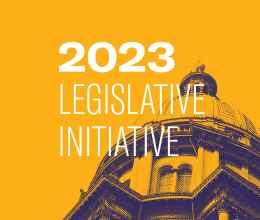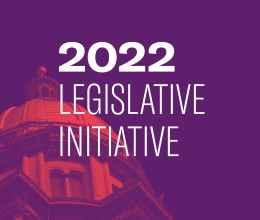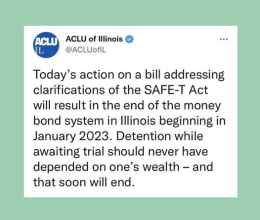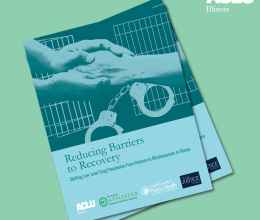
When the ACLU issued our report on stop and frisk in Chicago in March 2015, we made a number of explicit recommendations, all of which are recognized as “best practices” by persons who oppose unlawful stop and frisk, including: data collection about every stop by police, the public release of this data, the issuance of a receipt to every person stopped, and enhanced training of CPD officers in stop and frisk. We have advocated for these steps from the City for more than a decade. That report was widely distributed and shared with many groups who understood and shared our goals.
In pursuing these shared goals, some groups determined that the most effective strategy was the pursuit of an ordinance, now known as the STOP Act. Because that ordinance comported so closely to the goals articulated in the report, the ACLU supported the STOP Act when it was shared with us, and we continue to support it today. We hope the ordinance will move forward.
The agreement announced last week between the ACLU and the Chicago Police Department and the City of Chicago is a good step in addressing the problems with stop and frisk on Chicago streets.
The agreement is a product of negotiations that took place after the ACLU informed the City that we would file a lawsuit on behalf of a number of persons who had been stopped and searched in Chicago. By their very nature, those negotiations are almost always confidential and were conducted as such. We were not able, as part of that negotiation, to win every point. But the ACLU made the decision that it was critical to immediately get the Chicago police to collect all necessary data surrounding street stops, and to have an independent former judge review the lawfulness of stops by Chicago police, as well as the training and discipline of CPD officers. We are confident that the agreement will result in fewer stops on Chicago streets.
But we must be clear about some things being said about this agreement. It does nothing to limit the public’s access to data about stops. Under the agreement, this data remains accessible under Illinois Freedom of Information Act. We have made clear that we stand ready to assist anyone or any group who wants this FOIA-accessible data as part of their advocacy.
Most important, the ACLU never viewed the agreement as an end to advocacy or further reform in this area.





